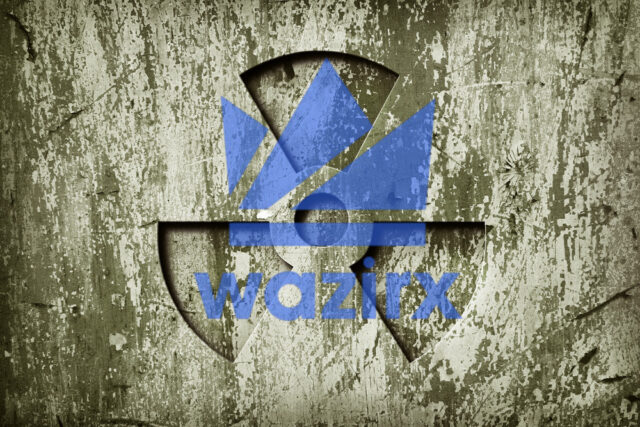In the wake of a massive $230 million security breach, Indian cryptocurrency exchange WazirX is grappling with user outrage over its proposed WazirX recovery plan. The plan, which involves “socializing” the losses by locking a significant portion of all users’ assets, has sparked widespread criticism. Users and industry leaders are condemning the approach as unfair. They question the ethics of distributing the financial burden among innocent account holders. As WazirX attempts to navigate the fallout, the incident raises broader questions about security and accountability in the fast-evolving cryptocurrency landscape.
The Breach and Its Impact
On July 23, 2024, WazirX experienced a major security breach resulting in the theft of approximately $230 million in user funds. Initial investigations suggest that the North Korean Lazarus Group, known for its cyberattacks on financial institutions, may have been involved in the exploit. This breach has intensified scrutiny of the security practices of cryptocurrency exchanges, especially in regions where regulatory oversight is still developing.
The impact of the breach has been immediate and severe. It left thousands of users in limbo, uncertain about the security of their remaining funds and the prospects of recovering their stolen assets. The breach has also cast a shadow over the credibility of WazirX. It was once hailed as a leading cryptocurrency platform in India.
WazirX’s Controversial Recovery Plan
In response to the breach, WazirX announced a controversial recovery plan that has only added to the uproar. The WazirX recovery plan proposes to “socialize” the losses. That means all users would bear a portion of the financial impact. Specifically, the plan involves locking 45% of users’ assets on the platform. These funds would then be used to cover the losses incurred during the hack.
This approach has sparked a significant backlash from users. Many feel the exchange is unjustly penalizing them for its own security failures. Critics argue that the plan effectively transfers the consequences of the hack onto innocent users. It undermines trust in the platform and the broader cryptocurrency ecosystem.
Industry Reactions and Ethical Concerns
The WazirX recovery plan has drawn sharp criticism from industry leaders and competitors. CoinDCX CEO Sumit Gupta labeled the plan as “utter nonsense,” highlighting the ethical concerns of making users pay for the exchange’s shortcomings. Many see this approach as setting a dangerous precedent. Exchanges might avoid accountability by shifting financial burdens onto their customers.
Legal experts and cryptocurrency analysts have also weighed in. They suggest that WazirX could face legal challenges from users who believe their rights have been violated. The plan raises critical questions about the responsibilities of exchanges to their users and the protections that should be in place to safeguard investor assets.
Broader Implications for the Crypto Industry
The WazirX hack and the ensuing controversy surrounding the recovery plan have significant implications for the cryptocurrency industry at large. They underscore the urgent need for stronger security measures and more comprehensive regulatory frameworks to protect investors. Amidst accelerated mainstream adoption, incidents like these highlight the vulnerabilities in the current cryptocurrency system and the need for robust protections.
Furthermore, the situation raises ethical questions about the relationship between cryptocurrency exchanges and their users. It challenges industry norms regarding accountability and transparency, prompting a reevaluation of how exchanges should manage risks and respond to crises.
As WazirX navigates this challenging period, the exchange faces a critical test of its leadership and crisis management capabilities. How it resolves this issue will impact the exchange’s future and also influence the broader cryptocurrency industry’s approach to security and user protection. The fallout from the hack and the controversy about its recovery plan is a stark reminder of the high stakes involved in the digital asset space and the importance of maintaining trust and integrity in this rapidly evolving landscape.
Readers’ frequently asked questions
What measures can cryptocurrency exchanges take to prevent such security breaches in the future?
To prevent security breaches like the one experienced by WazirX, cryptocurrency exchanges must implement robust cybersecurity measures. This involves adopting multi-layered security protocols, such as two-factor authentication (2FA), cold storage for the majority of user funds, and regular security audits to identify and rectify vulnerabilities. Employing advanced encryption technologies can also safeguard sensitive data against unauthorized access. Additionally, exchanges should establish comprehensive incident response plans to ensure quick and effective action in the event of a breach. By investing in ongoing employee training programs, exchanges can further mitigate risks. Employees are often the first line of defense against cyber threats. Finally, collaborating with cybersecurity experts and utilizing blockchain analytics tools can enhance monitoring capabilities. They help to detect suspicious activities early and prevent potential breaches.
How can users protect themselves and their assets when using cryptocurrency exchanges?
Users can take several proactive steps to protect themselves and their assets when using cryptocurrency exchanges. One of the most important practices is to enable two-factor authentication on their accounts. It adds another layer of security beyond just a password. Users should also consider using hardware wallets to store cryptocurrencies. They should not keep all their assets on an exchange. These cold wallets are less vulnerable to online attacks. Regularly updating software and security features on devices used for trading can prevent the exploitation of vulnerabilities. Users should be cautious about phishing attacks and ensure they only access exchange platforms through official websites or apps. Additionally, keeping track of transactions and setting up alerts for account activities can help users quickly identify unauthorized actions. Being informed about the security features of the exchanges they use and opting for platforms with a strong security track record can also significantly reduce risks.
What are the potential legal and regulatory implications for WazirX following this breach?
Following the breach, WazirX faces several potential legal and regulatory implications. The exchange could be subject to investigations by regulatory bodies, such as India’s Financial Intelligence Unit (FIU) and potentially international organizations like the FBI, given the suspected involvement of the North Korean Lazarus Group. These investigations could lead to sanctions or fines if WazirX is found to have violated any security or compliance regulations. Furthermore, the exchange may face lawsuits from users who suffered financial losses. They might argue that WazirX’s security measures were insufficient. This could result in significant legal expenses and damage the exchange’s reputation. The breach might also prompt regulators to introduce stricter regulations and oversight for cryptocurrency exchanges in India and potentially globally, emphasizing enhanced security protocols and consumer protection measures. This regulatory scrutiny could drive industry-wide changes, requiring exchanges to adhere to more rigorous standards.
What Is In It For You? Action Items You Might Want to Consider
Diversify Your Cryptocurrency Holdings Across Multiple Platforms
To mitigate the risk of losing funds in a security breach, it’s wise to diversify your cryptocurrency holdings across multiple exchanges. By spreading your assets, you minimize the impact of a single exchange being compromised. Choose exchanges with a solid reputation for security and transparency. Make sure they are regulated and compliant with industry standards. This strategy can safeguard your investments and provide more stability in uncertain times.
Invest in a Hardware Wallet for Long-term Storage
Consider purchasing a hardware wallet to store the majority of your cryptocurrencies offline. Hardware wallets offer enhanced security by keeping your private keys offline, away from potential online threats. They are particularly useful for long-term storage of assets you do not need to trade frequently. This additional layer of security can protect your assets from exchange hacks and other cyber threats, ensuring peace of mind in your trading activities.
Stay Informed and Engage with the Crypto Community
Regularly update yourself on the latest news and developments in the cryptocurrency world, including security practices and regulatory changes. Engaging with the crypto community through forums, social media, and news outlets can provide valuable insights and early warnings about potential risks and vulnerabilities. Staying informed will help you make educated decisions about where to trade and how to protect your assets. It will also allow you to participate in discussions about best practices and security measures in the industry.










